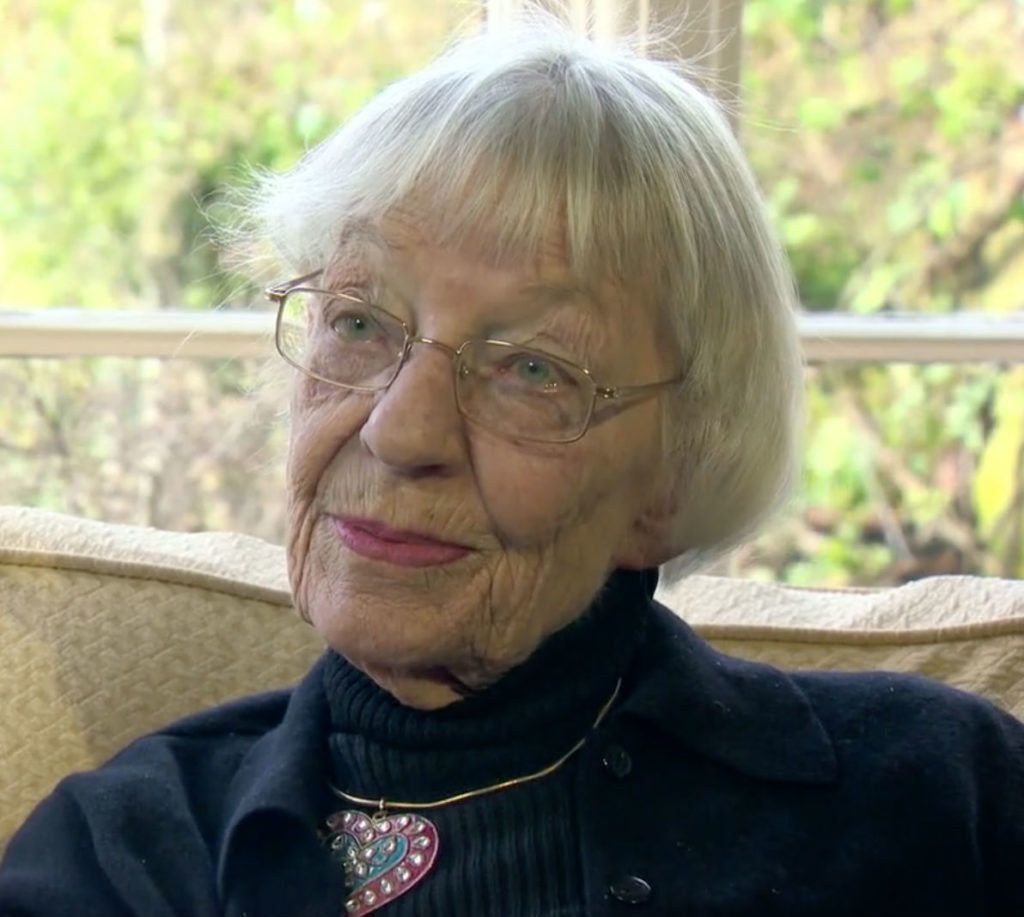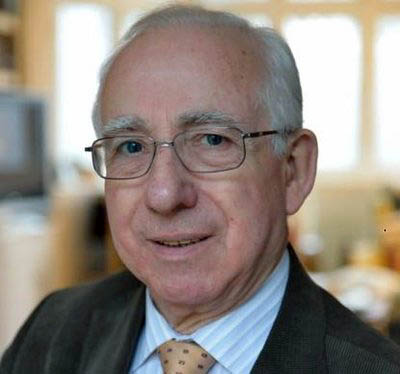W-BAD Pays Tribute to Dr. C. Heather Ashton
D.M., F.R.C.P

World Benzodiazepine Awareness Day would like to take the opportunity to honor Dr. C. Heather Ashton for her tireless and enduring contributions to the iatrogenic benzodiazepine cause. Dr. Ashton has considerable expertise on benzodiazepines, earning her the title of ‘The World’s Leading Expert on Benzodiazepines and Benzodiazepine Withdrawal’, as she dedicated her life’s work to assisting benzodiazepine-dependent patients, documenting clinical research, and continuing to help spread education and information on BWS even after she’d long since retired.
From the experience garnered in her benzodiazepine clinic, she gave the world The Ashton Manual which will, no doubt, continue to aid and guide countless innocent victims (and their doctors) of benzodiazepine iatrogenesis for decades to come. She has kept up-to-date on new research technologies and hopes that continued research in these areas may pick up where she left off, and she has mentioned this in a 2011 supplement to her manual.
Where there was little information that existed on this problem before Dr. Ashton’s contributions, her selfless work to make this information accessible to victims via the benzo.org.uk database and her protocol has saved many lives and allowed for many disastrous outcomes to be avoided. It is for these reasons that World Benzodiazepine Awareness Day was decided to be observed annually on July 11th, as it is Dr. Ashton’s birthday.
It is with deep gratitude from W-BAD to you that we salute you, honor you, and thank you, Dr. Ashton. It is W-BAD’s mission and commitment to carry on your life’s work and to continue doing so until the result is the much-needed global change and awareness around this senseless and totally avoidable suffering. Without your guiding light, however, many of us would have been lost and without direction or education about what was happening to us and/or our loved ones. It is for that reason that your work and contributions are immeasurable.
Message from Dr. Ashton
For W-BAD’s inaugural year (2016), Heather sent a message to the iatrogenic benzodiazepine community that was delivered through her son:
Dear Barry and Wayne,
I wanted to drop you both a line on this very special day. Special not because it’s my birthday (87; I can hardly believe it!) but because by your efforts you have made it the first World Benzodiazepine Awareness Day.
I deeply appreciate everything you have done to call attention to the scourge of benzo dependency, and in doing so to stand up for the millions of people who through no fault of their own have suffered and continue to suffer in its grip. I congratulate you for the progress you have made in this, latterly through your work on W-BAD. And I wanted to send you now my very best wishes for the next stage of your excellent campaign.
I am sending this message to the two of you becaue you have been kind enough to keep me in touch with the W-BAD preparations, and in Wayne’s case to have sent me a wonderful T-shirt (which I shall wear with pride). But I know countless others are fighting with you in the same struggle – a few known to me but many not – and I salute all of them with the same gratitude, respect and warmth. So please feel free to share this message as widely as you see fit.
And thanks too to both of you for the birthday greetings you have kindly sent me.
With my very best wishes. I’m sorry I’m not able to keep in touch day by day but I do appreciate all your efforts and the information you so kindly send me about them.
Heather
W-BAD Honours Professor Malcolm H. Lader
O.B.E., LL.B., D.Sc., Ph.D., M.D., F.R.C. Psych., F. Med. Sci.

World Benzodiazepine Awareness Day would like to take the opportunity to honor Professor Malcolm H. Lader and his team of colleagues at King’s College in London, England for first recognizing problems with benzodiazepines and documenting their unique scientific research in the medical literature over 50 years ago.
His efforts to spread awareness even prior to the existence of the internet were far-reaching as he advised the World Health Organization and traveled to other countries to talk to government bodies and even royalty regarding his concerns with benzodiazepines – a level of activism we all are incredibly thankful for.
Finally, W-BAD would like to express our deep gratitude to Dr. Lader for guiding the team in generating content for W-BAD operations and worldbenzoday.org. It is important to W-BAD that the information provided has integrity, quality, and accuracy, and Professor Lader worked with us to help to ensure this as much as possible, even though he is retired. His advice continues to be invaluable in guidance on generating information and for that, we are also grateful.
Because Professor Lader was a research scientist in an educational institution, like Dr. Ashton, he and his colleagues were government-funded and thus had no significant monetary gain by pursuing such research into the benzodiazepine problems. It is with gratitude and great respect that we thank Dr. Lader for his contributions to the cause as it set the stage to help to move progress forward in awareness and understanding the nature of the problem, and hopefully someday, research for a cure. Thank you for your lifetime dedication and commitment Professor Lader.
Lader on Protracted Withdrawal Syndrome (PWS):
“It’s more difficult to withdraw people from benzodiazepines than it is from heroin – it just seems that the dependence is so ingrained and the withdrawal symptoms you get are so intolerable that people have a great deal of problem coming off. The other aspect is that with heroin usually the withdrawal is over within a week or so. With benzodiazepines a proportion of patients go on to long-term withdrawal and they have very unpleasant symptoms for month after month and I get letters from people saying that it can go on for 2 years or more. Some of the tranquilliser groups can document people who still have symptoms 10 years after stopping.”
– Professor Malcolm H. Lader, BBC Radio 4, Face the Facts, broadcast on March 16, 1999
Lader on benzodiazepine withdrawal syndrome (BWS)
resulting in long-term illness even in people without a history of mental health problems:
“The main characteristic of these dependent people was that when they tried to stop they didn’t just get their old symptoms back, they didn’t just get their old symptoms back in an exaggerated form, they developed new symptoms which they had not experienced before. […] Some people are put on to these tranquillisers not because they are anxious or have insomnia, they can’t sleep, it’s because they have muscle spasms – they’ve been injured in some way – they’ve had a skiing accident, or they’ve got a bad back. And they’re put on and they’ve had no psychiatric history, they’ve had no anxiety, no insomnia, and yet they’re just as likely to show dependence and withdrawal when they stop as those with a previous psychiatric history.”
– Professor Malcolm H. Lader, In Pills We Trust, Discovery Channel, December 4-18, 2002
Lader on iatrogenic prescribed physical dependence:
“We knew from the start that patients taking markedly increased doses could get dependent. But [we] thought only addictive personalities could become dependent and that true addiction was unusual. We got that wrong. What we didn’t know, but know now, is that even people taking therapeutic doses can become dependent.”
W-BAD Pays Tribute to Michelle Goulevitch

W-BAD is forever grateful to the late Michelle Goulevitch who sadly passed from iatrogenesis / medically induced drug damages on 19 August 2021 at age fifty. Michelle continued contributing to the cause and helping others amidst her own suffering right up to her very last moments. She was also instrumental in the resurrection of W-BAD.
See Michelle’s profile page for full tribute
Also see Michelle’s story



